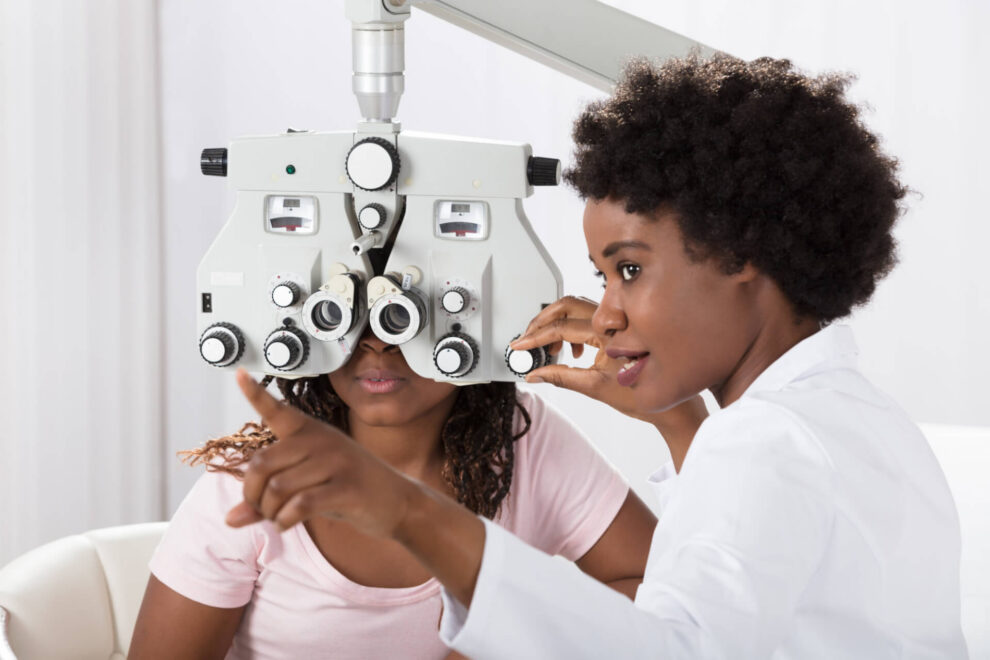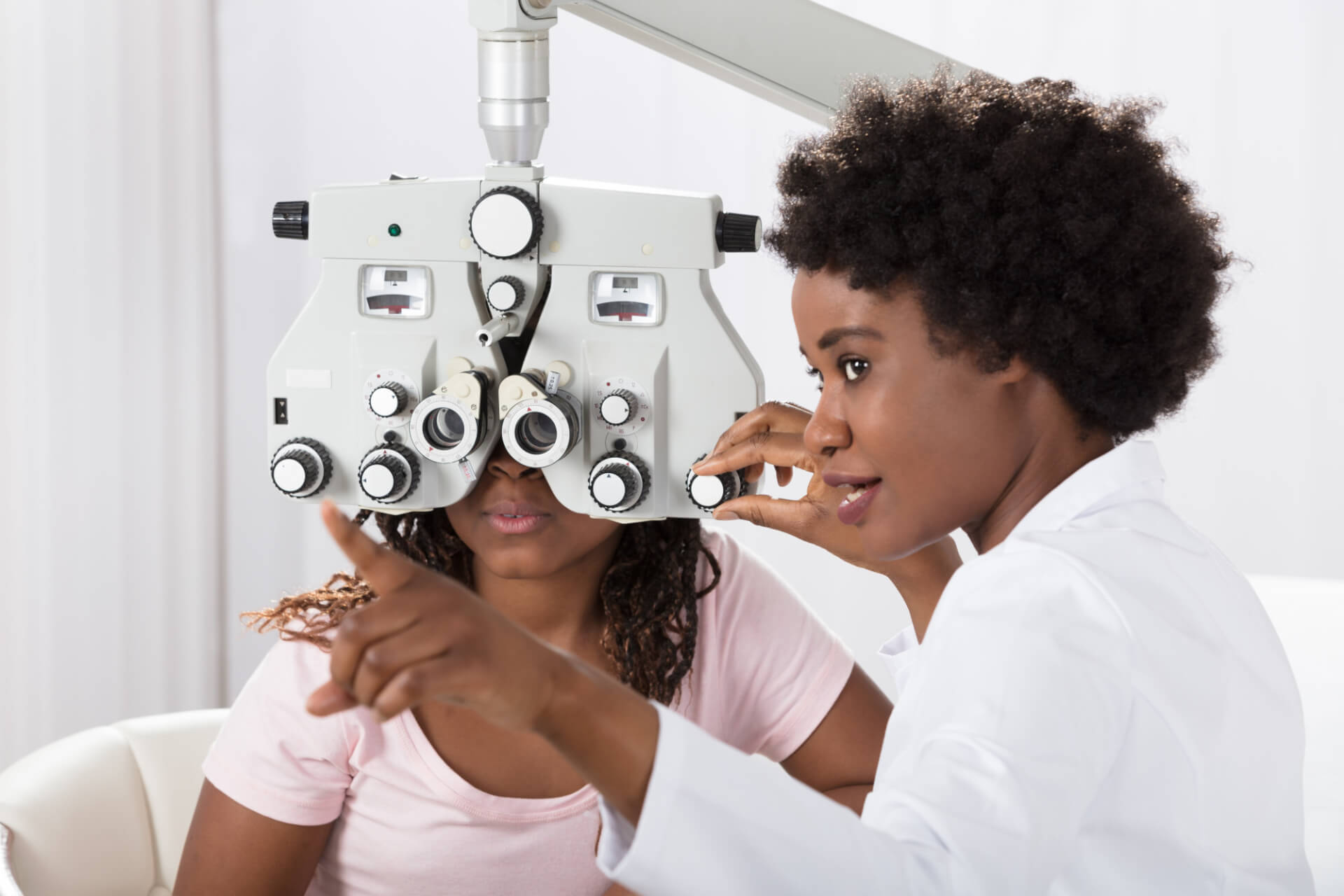Posted by: Kentucky Eye Institute in Vision Care


About 12 million people over the age of 40 in the United States have some type of vision impairment. Because vision problems are so common, finding some type of treatment can be life-changing for many people. Do you want to learn more about some of the most common vision problems and how you can treat them?
Keep reading this article for 6 of the most common problems with vision and to learn more about how a Versailles optometrist can help you!
1. Myopia
One of the most common types of vision impairment is myopia. This is also known as nearsightedness. This is one of several types of refractive errors in your eyes.
Essentially, the light that reaches your eye is not able to focus correctly and things may look blurry. With nearsightedness, things that are close to your eyes will look clear, but you will be unable to see things that are far away.
While it is not an eye disease, it does affect nearly 25% of people in the United States.
Some common symptoms of nearsightedness include headaches, the strain on your eyes, and having to squint to see faraway things properly. To help reduce the effects of myopia, you can wear glasses with corrective lenses or contacts.
Myopia can be treated by laser surgery as well, including LASIK.
2. Hyperopia
Another type of vision impairment that is quite common is hyperopia. This is also known as farsightedness. It is similar to myopia as it is a refractive error and results in blurred vision.
While those with myopia can see close objects, people with farsightedness can see far objects more clearly than close objects.
Similar to nearsightedness, hyperopia can be treated with LASIK as well as corrective lenses. However, there are also natural treatments that can improve your farsightedness. If you change your diet and practice exercises for your eyes, you may see some improvement!
3. Cataracts
One common vision problem that generally occurs with age is a cataract. Essentially, a cataract will cloud the lens of your eye. This makes it feel like you are always looking through a cloudy window.
These cataracts typically develop slowly and won’t affect your vision early on. When your cataracts are not fully developed, you may find that glasses will help you see better. Once cataracts progress, you will likely need surgery to remove and replace your clouded lens.
Some symptoms of cataracts included clouded vision, seeing lights with halos around them, and needing better light to be able to see.
4. Astigmatism
Astigmatism is another common problem that affects the cornea or lens in your eye. While normal eyes are curved, astigmatism keeps your eye from being completely round.
This refractive error can make it difficult for your eyes to focus. This eye problem can be common connected with other types of vision impairments, like nearsightedness and farsightedness.
If you notice that you have difficulty seeing at night or if you have frequent blurry or distorted vision, you may have astigmatism.
There are a few treatment options for astigmatism. Similar to the other vision impairments, you can improve your eyesight with glasses or contacts. Otherwise, you can treat astigmatism with one of 4 surgery options. These include LASIK, PRK, SMILE, and cataract surgery which replaces your lens with an astigmatism-correcting lens.
5. Age-Related Macular Degeneration
Age-related macular degeneration is a common condition and is often the cause of vision lost for older people. It causes damage to the macula, which results in the loss of your central vision.
This makes it much harder to see things straight-ahead of you. As you age, macular degeneration can get worse. There are not many complete treatment options for this condition, so it is important to catch it in its early stages.
In the earliest stages, you can work to improve your diet and exercise to keep your AMD from progressing. In later stages, you can take supplements with vitamins and minerals that can prevent late age-relaged macular degeneration.
Other than these treatments, doctors may suggest treatment options including laser treatment and medication that is injected into your eye.
6. Glaucoma
Finally, glaucoma is a type of eye condition where the optic nerve is damaged. This can be a result of extremely high pressure in your eye and is one of the leading causes of blindness.
Unfortunately, there are not treatments to help you regain your vision when you have glaucoma. However, if you catch it during the early stages, you can prevent vision loss or slow the progression of your vision loss.
By getting regular eye exams and by measuring your eye pressure, you can help treat your glaucoma. These treatments will help lower your eye pressure. Your doctor may prescribe you eyedrops, laser treatment, surgery, or even oral medication to help you manage your glaucoma.
Find a Lexington Eye Care Specialist to Help With Your Vision Problems
There are many types of vision problems that you can be born with or develop later in life. When you have or develop vision problems, it can significantly inhibit your daily life. By hiring an optometrist in Lexington, KY, you can get the care you need, regardless of what type of vision impairment you have.
Are you looking for an eye doctor in Lexington, KY? Kentucky Eye Institute can help! We have a Versailles eye clinic with specialists that can help you learn more about vision impairment and treatment options.
Contact our team to learn more about our services and to find treatment options today!
